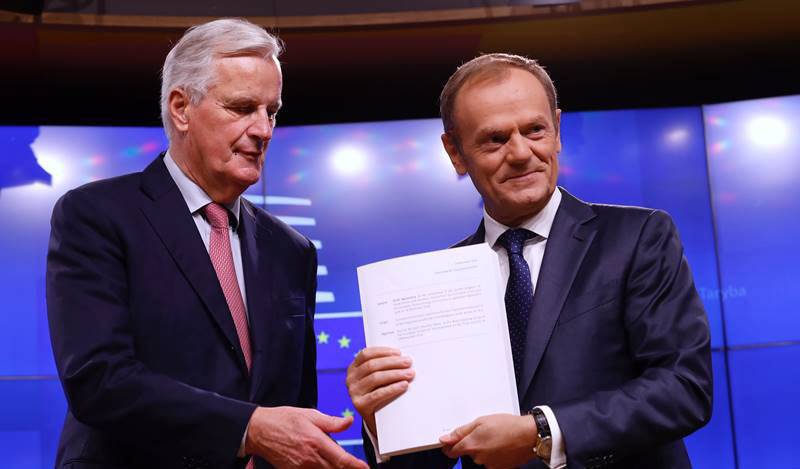I took good note of Prime Minister May’s statement yesterday. Of course, I don’t share the Prime Minister’s enthusiasm about Brexit as such. Since the very beginning, we have had no doubt that Brexit is a lose-lose situation, and that our negotiations are only about damage control.
Given these extremely difficult circumstances, I would like to thank Michel Barnier and his team, especially Sabine Weyand and Stéphanie Riso, for doing this exceptionally hard work. Michel, we all put a lot of trust in you, and rightly so. You have achieved our two most important objectives. First, you ensured the limitation of the damage caused by Brexit and, second, you secured the vital interests and principles of the 27 member states, and of the European Union as a whole. If I weren’t confident that you did your best to protect the interests of the twenty‑seven, and I am familiar with the essence of the document, I would not propose to formalise this deal.
In the next days, we will proceed as follows. The agreement is now being analysed by all the member states. By the end of this week, the EU27 ambassadors will meet in order to share their assessment of the agreement. I hope that there will not be too many comments. They will also discuss the mandate for the Commission to finalise the Joint Political Declaration about the future relations between the EU and the UK. The European ministers will be involved in this process. The Commission intends to agree the declaration about the future with the UK by Tuesday. Over the following 48 hours, the member states will have time to evaluate it, which means that the EU27 Sherpas should conclude this work on Thursday. Then, if nothing extraordinary happens, we will hold a European Council meeting, in order to finalise and formalise the Brexit agreement. It will take place on Sunday 25th November at 9:30.
Finally, let me say this to our British friends. As much as I am sad to see you leave, I will do everything to make this farewell the least painful possible, both for you and for us.



